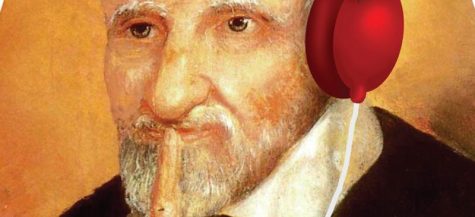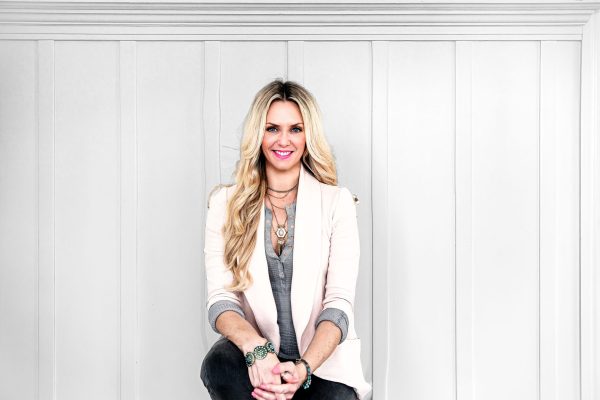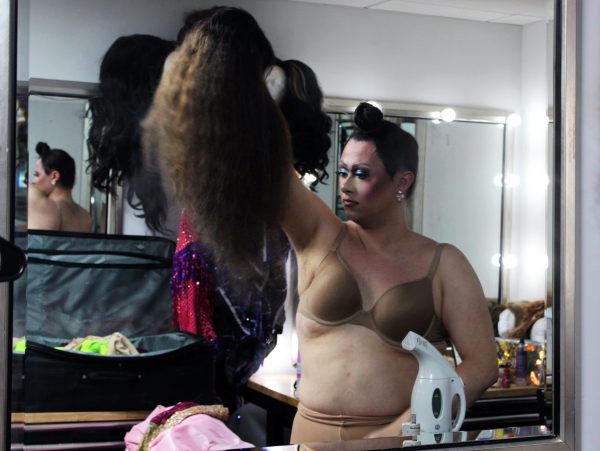DePaul students find ways to save during Covid-19
Piper DeYoung finds snacks on sale at a Lakeview Jewel-Osco on Feb. 19, 2021.
We all know the running joke between college students and graduates that the average collegiate diet is made up of Maruchan ramen noodles and bottom-of-the-shelf liquor. Now, in the thick of the Covid-19 pandemic, this joke has become more of a reality.
According to a 2020 financial wellness study conducted by Ohio State University, 81.5 percent of DePaul students participating in the survey reported having feelings of stress about their personal finances.
DePaul sophomore Piper DeYoung said financial security is important to her as an emerging adult.
“I think it’s important to learn how to budget, especially when you’re in school,” DeYoung said. “I think there’s so much more to college than just reading books and doing schoolwork. You have to learn how to live as an adult.”
Before the outbreak of the Covid-19 pandemic, DeYoung said she spent more money on wants. Now, because the pandemic has forced her to stay at home more often, she’s more equipped to gauge when to save and when to spend.
“I love a good bargain,” DeYoung said. “Whenever I see a deal on something, I make sure to get that brand because it’s on sale just because I feel like if you can save money, you might as well.”
DePaul sophomore Max Driscoll said he too is learning what financial independence means for him, having come from a financially stable and supportive family.
“I’ve had a very blessed life,” Driscoll said. “I never really had a budget. So I had to learn how to evaluate and ask questions regarding the importance of things and had to learn how to determine what I really need.”
When Driscoll was in high school, he said managing his spending habits was a challenge because funds were provided to him by his family. But being older and in college, especially during the pandemic, has demonstrated “the value of a dollar” to Driscoll, who said he’s improved how he spends.
“More recently, I feel like I’ve gotten a lot better [at managing money],” Driscoll said. “When I go to a store, I say to myself, ‘Do I need this? Is this a want? Is this a justified want? Or is it a need?’ If I need it I buy it. But if it’s a want, I have to think about, ‘Okay, is this purchase justified?’”
Everyone has their own financial circumstances and approaches to staying afloat, and the challenges — or privileges — of those situations can make or break a student’s college experience.
But not every DePaul student has the opportunity to bargain hunt with friends at Target or lean on their parents in a pinch. Some students are forced to fend for themselves by picking up odd jobs, couch surfing and scraping up a bite to eat.
According to Natalie Daniels, the associate director of the Office of Financial Fitness at DePaul, students in need will likely seek out help if they need it. But it’s also likely a handful of students aren’t accessing the resources available to them for a variety of reasons.
“It’s really tricky,” Daniels said. “We don’t necessarily know which students are experiencing homelessness or housing insecurity. But for students who are experiencing housing insecurity or very low income, there is more financial aid available, provided you’re a U.S. citizen. It’s hard.”
In a joint effort between DePaul University and DePaul USA, a national homeless services nonprofit organization, approximately 50 DePaul students who are homeless are provided residency each quarter through the Dax Program, according to Chicago Dax Program director Abraham Morris.
And in partnership with the St. Vincent DePaul Parish, DePaul University has made food accessible to students in need through the Elizabeth Ann Seton Food Pantry and Sandwich Kitchen.
Regardless of a student’s circumstances, Daniels encourages students to reach out for financial advising through the offices of Financial Aid and Financial Fitness. She also reminds students of their power to appeal their financial aid, which can help students receive additional support for tuition and housing costs at DePaul.
“There is support that’s being given, and certainly it’s not solving [financial strain] for every student,” Daniels said. “But the more we know within Financial Aid, the more we can do to help.”



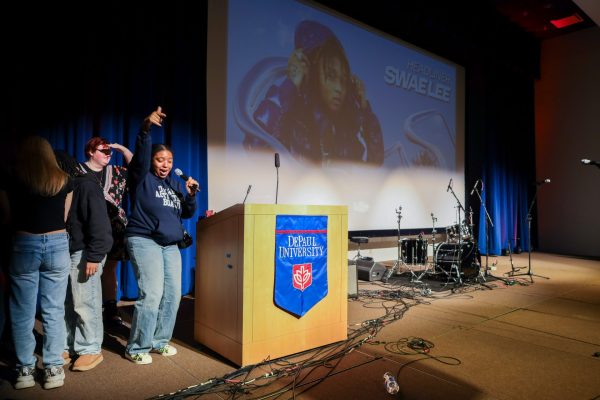
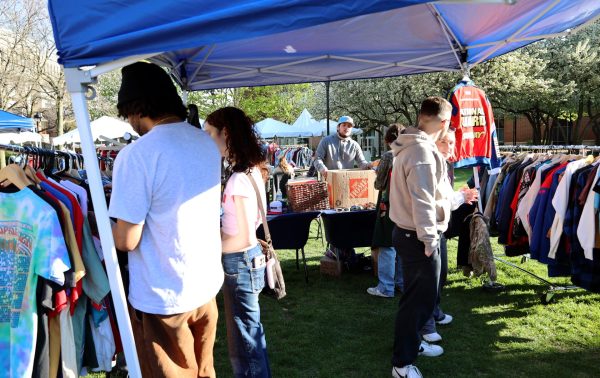

![DePaul sophomore Greta Atilano helps a young Pretty Cool Ice Cream customer pick out an ice cream flavor on Friday, April 19, 2024. Its the perfect job for a college student,” Atilano said. “I started working here my freshman year. I always try to work for small businesses [and] putting back into the community. Of course, interacting with kids is a lot of fun too.](https://depauliaonline.com/wp-content/uploads/2024/04/ONLINE_1-IceCream-600x400.jpg)
